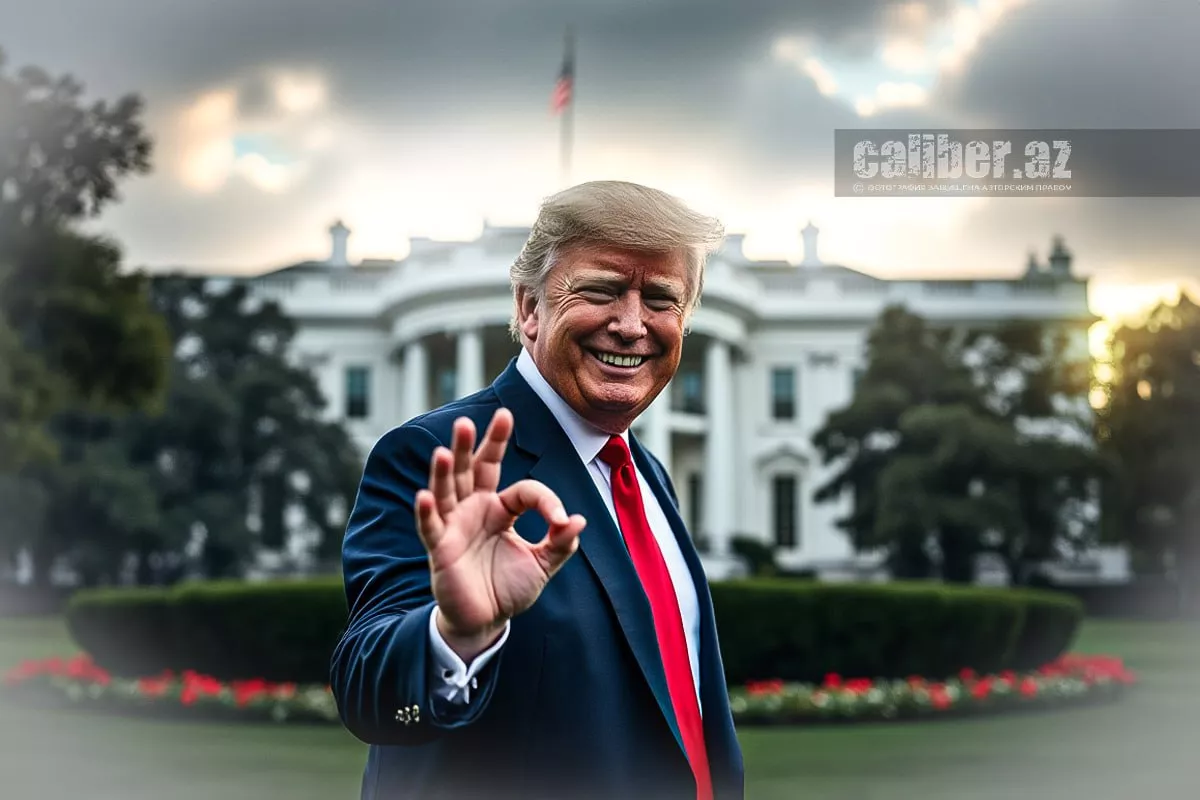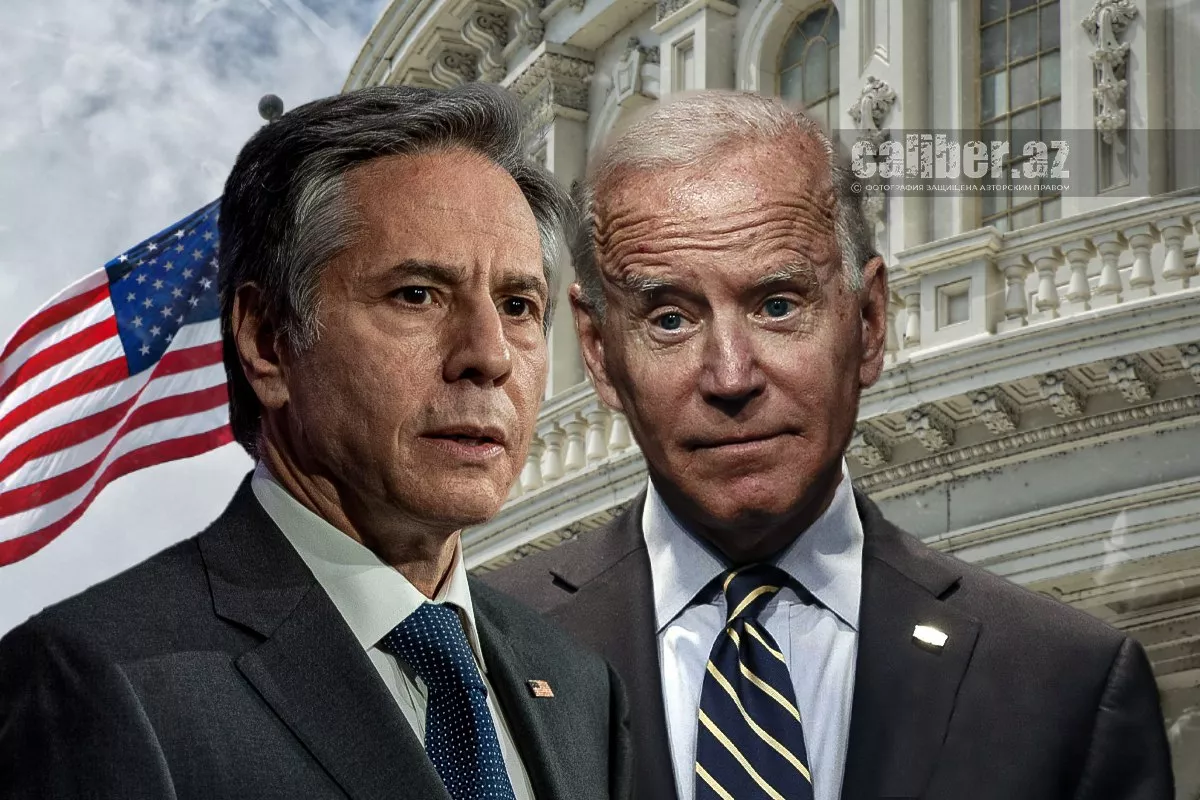The sad results of the Biden administration At the wrong time, in the wrong place
The political landscape in the United States is undergoing significant change. As Donald Trump's administration prepares to take office, the outgoing Biden administration is attempting to highlight its so-called historical achievements. However, these claims are few and far between.
Today, January 20, marks the inauguration of Donald Trump as the 47th President of the United States. This event not only turns a new page in the nation's presidential history but also signals the beginning of a new era in American politics and international relations. The impact of the upcoming Republican administration under Trump-Vance on the future of both the United States and global affairs will be explored in detail once it officially assumes power. For now, it is crucial to reflect on the results of the four years of Democratic rule under Joe Biden and Kamala Harris.
The outgoing White House leader also devoted the final moments of his presidency to summing up his time in office. More accurately, he focused on shaping a favourable public perception of his accomplishments. Joe Biden addressed the nation from the Oval Office for the last time and also delivered themed speeches at various departments, including the State Department and the Ministry of Defense. In each of these addresses, he made a point of emphasizing his political legacy.
Who cares about Biden's legacy?
It is natural and understandable that the outgoing administration seeks to leave a positive impression in the minds of Americans. This effort is driven both by Biden's own ambitions and by the electoral needs of the Democratic Party.
Biden has spent his entire political career aiming for the presidency, and when it finally became attainable in his later years, he seemed to believe in his own destined historical mission. This may explain why he stubbornly resisted the urging of many high-ranking Democrats to step aside in favour of a younger candidate for the 2024 race. He also refused to believe the polls, which showed bleak prospects for his re-election campaign. This pessimism was already apparent before the disastrous TV debates with Trump in June, after which it became clear that the U.S. would be getting a new president.

The fact that Joe Biden's presidency coincided with a period in history when the foundations of the old world were collapsing and many former political axioms were no longer valid likely intensified his ambition to leave a prominent mark on history. This gave rise to the notion of needing to return America—and the entire world—to the path of development that the outgoing generation of Democrats envisioned as the only correct one. Anything that did not align with this view has been seen by many within his circle not as a natural evolution, but as an aberration, an unfortunate misunderstanding, or a set of circumstances that needed to be forcefully corrected and "normalized." Once it became clear that continuing such a historical mission in a second presidential term was no longer possible, Biden and his closest aides naturally sought to leave behind a more favourable legacy in the public's memory.
As for the Democratic Party as a whole, it must focus on future electoral campaigns. It is highly unlikely that by the time of the next elections—both for Congress and especially the presidency—the party will be able to maintain many of its programmatic positions unchanged. The socio-political landscape in the U.S. and the state of international relations are shifting so rapidly and often irreversibly that even the most staunch conservatives and dogmatists will have to evolve if they wish to remain relevant. At the same time, future Democratic candidates, of course, will want to reduce their vulnerability to criticism of Biden’s four years in office and avoid having to defend his many miscalculations and mistakes. Therefore, it is in their interest that as many voters as possible retain positive feelings about the outgoing president’s legacy.
Dogmatists from a bygone era
In her brief address reflecting on the outgoing administration's tenure, Vice President Kamala Harris began with the words: "history is going to show how transformative this moment really was." And it is difficult to disagree with this statement from the would-be successor to Biden on the presidential bridge. The last (and upcoming) years truly represent a period of massive historical changes, which will likely shape the trajectory of global development for decades to come.
However, the problem—or perhaps even the tragedy—of Biden's presidency lies in the fact that he and key members of his team turned out to be dogmatists from a rapidly fading historical era. They might have been exemplary and organic leaders of the American superpower in the 1990s or early 2000s, during a time when the West's dominance in global politics and economics was absolute and, consequently, prosperous. It was an era when everything American was viewed almost everywhere in the world, and within the U.S. itself, as a model of perfection and progress. Washington was seen as the ultimate moral and diplomatic authority, and its stance on nearly any international issue was unquestioningly accepted as final and decisive.
The worldview, management approaches, and diplomatic style of the outgoing administration were firmly rooted in that era. By continuing to speak and act as though the 1990s were still unfolding, key figures of the administration effectively became lost in past historical periods. Along with them, at least in certain matters and during specific phases of their rule, U.S. domestic and foreign policies also lost their direction.

One might assume that, in their own view, this was an attempt to return to the old ideals—the greatness of America under the banners of eternal values, with which the country had forged its identity as a "miracle on Earth" and which it carried to the rest of humanity. However, in reality, such dogmatic approaches led to a swift and painful collision with a rapidly changing reality, both globally and within the United States itself.
Therefore, the central message conveyed in the farewell speeches and interviews of Joe Biden and his team is difficult to accept. It essentially states: after four years of our leadership, we leave the United States in a much stronger position both domestically and on the international stage than it was at the beginning of 2021, when we ousted Trump from the White House.
The very fact that Biden, in his final address from the Oval Office, spoke about the imminent danger of the collapse of American democracy and the rise of uncontrolled oligarchy contradicts the claim of significant historical achievements by his administration. A country in a "much stronger position" should, by definition, be resilient to such challenges. In fact, such challenges should not even exist in any serious capacity within that country.
Memed foreign policy failures
The same can be said about foreign policy (though there are some important nuances to consider, which will be discussed below). Speaking at the State Department, the 46th President of the United States claimed, somewhat boldly, that he had increased American power in all areas. But if this is the case, then why, in various regions around the world, are crises and wars proliferating like mushrooms after rain, destabilizing the American-centric world order? Why is Washington unable not only to stop these crises on terms favourable to it, but also forced to become increasingly involved in some of them—more actively and at a greater cost than it would have preferred? Why has the word of the U.S. president ceased to be an unquestioned directive, as we recently witnessed, for example, in the Middle East and Ukraine?
In some ways, the reasons for the discrepancies between Biden's foreign policy outcomes and his desired or imagined results are objective. The transformation of the previously unipolar world, where a long-dominant superpower could no longer continue its dominance in the same manner, made it inevitable. Thus, claiming outstanding foreign policy achievements simply because one wishes to live as before lacks merit. However, other reasons lie within the realm of the numerous mistakes made by the Biden administration, for various reasons.
Some of these errors have become long-lasting memes. A prime example is how Washington handled the withdrawal of troops from Afghanistan. Biden unnecessarily told the world’s cameras that U.S. actions would in no way lead to the Taliban taking full control of the country and that there would be no shameful evacuation, like what happened during the Vietnam withdrawal. Yet, just days later, such images flooded news feeds worldwide.

Something similar occurred just before the onset of a series of destructive wars in the Middle East. Biden's National Security Advisor, Jake Sullivan, loudly took credit for establishing a level of peace, stability, and calm in the Middle East that had never existed. Yet, just as he made these claims, the horrific terrorist attack on October 7, 2023, in southern Israel took place, plunging the region into total destabilization.
The list could go on. Analyzing the reasons behind such failures requires a separate discussion. There is likely the widespread issue, now prevalent everywhere, of abandoning real expertise in favour of ideologically "correct" narratives disguised as analysis. There were also systemic errors in governance and coordination between various government agencies. But in any case, these events demonstrated that Biden still "failed to adapt his positions to changing realities."
Everything is fixable for the U.S.
However, despite all the foreign policy mistakes and even failures of the Biden-Harris administration, there is still good news for both the United States and the incoming Trump-Vance administration. In short—Washington can fix things. Superpowers stand apart from other types of states in international relations because they always have a sufficient margin of resilience. In other words, they can afford to make mistakes that would have led weaker states into an existential crisis, yet continue to "sail on." If the new Republican administration can shift U.S. political direction toward the realities of the modern world, it has every reason to expect success in a world marked by escalating geopolitical competition.








